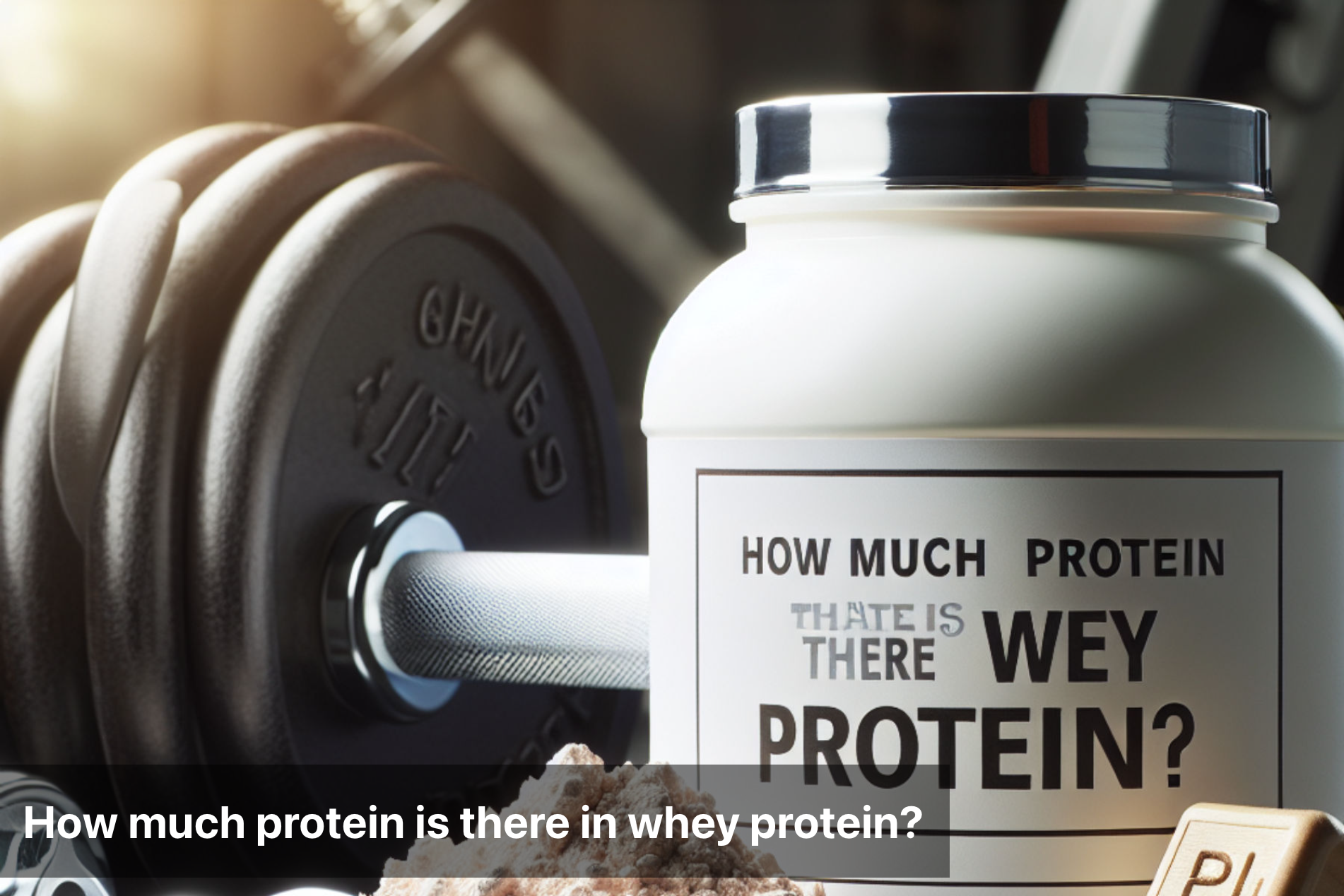
How much protein is there in whey protein?
Whey protein is a popular dietary supplement known for its high protein content and significant role in the fitness and bodybuilding community. Derived from milk during the cheese-making process, whey protein has gained widespread recognition as a convenient and effective source of protein for individuals aiming to enhance muscle growth and improve overall health.
Whether you are an athlete looking to boost performance, a fitness enthusiast striving to build lean muscle, or simply seeking to increase your protein intake, incorporating whey protein into your daily routine can offer a convenient and efficient way to meet your nutritional needs.

What is Whey Protein?
Whey protein is a high-quality protein derived from milk during the cheese-making process. It is a complete protein containing all essential amino acids required by the body.
There are two main types of whey protein: whey protein concentrate and whey protein isolate.
Whey protein concentrate contains low levels of fat and carbohydrates and retains more beneficial components found in whey, such as immunoglobulins and lactoferrin.
On the other hand, whey protein isolate undergoes further processing to remove most of the fat and lactose, resulting in a higher protein content per serving.
The sources of whey protein include cow's milk, which is composed of two types of protein: casein (80%) and whey (20%).
During cheese production, whey is separated from the casein and processed to remove water, fat, and lactose, leaving behind the protein-rich powder known as whey protein.
The extraction process involves filtering, drying, and pasteurizing the whey to ensure a clean and pure protein product. This process helps concentrate the protein content while removing impurities, resulting in a convenient and effective protein supplement for fitness enthusiasts and individuals looking to increase their protein intake.
Nutrient Content in Whey Protein
One scoop (19.5 grams) of whey protein powder contains:
Calories |
75 |
Fat |
1g |
Sodium |
75mg |
Carbohydrates |
3.5g |
Fiber |
0g |
Sugars |
1g |
Protein |
13g |
Health Benefits and Side Effects
Benefits
Muscle Growth: Supports muscle repair and growth due to high-quality protein and amino acids.
Weight Management: Promotes satiety, aiding in weight loss and reducing hunger.
Improved Athletic Performance: Enhances recovery and performance in physical activities.
Immune Support: Contains immunoglobulins that can boost immune function.
Convenient Nutrition: Easy and quick source of high-quality protein, ideal for busy lifestyles.
Side Effects
Digestive Issues: May cause bloating, gas, and diarrhea, especially in lactose-intolerant individuals.
Kidney Stress: Excessive intake can strain kidneys, particularly in people with pre-existing kidney conditions.
Allergic Reactions: Some individuals may experience allergies to whey protein.
Nutrient Imbalance: Over-reliance on supplements might lead to neglecting other essential nutrients from whole foods.
Acne: Some reports suggest whey protein may contribute to increased acne breakouts.

Whey Protein: How Much Protein Does It Contain?
Firstly, when it comes to protein in whey protein, we learned about the different types available, such as isolate, concentrate, and hydrolysate. Each variant offers a specific protein content level, catering to diverse fitness needs and goals.
Next, exploring the benefits of incorporating whey protein into our daily routine revealed how it aids in muscle building, weight management, and overall health. The high protein content not only supports muscle recovery and growth but also helps in achieving and maintaining a healthy weight.
The protein content in whey protein supplements serves as a valuable addition to a balanced diet and fitness regimen. By including whey protein, individuals can effectively meet their daily protein requirements, support muscle development, and enhance their overall well-being. It's clear that whey protein is more than just a supplement – it's a reliable ally in achieving fitness goals and maintaining a healthy lifestyle.
FAQs
-
What is the typical protein content in whey protein supplements?
Whey protein supplements typically contain around 20-25 grams of protein per serving.
-
How much protein should I expect in a scoop of whey protein powder?
A standard scoop of whey protein powder usually provides 24-25 grams of protein.
-
Is the protein content in different flavors of whey protein the same?
Yes, regardless of the flavor, the protein content remains consistent in whey protein products.
-
What is the percentage of protein in whey protein concentrate vs. isolate?
Whey protein isolate contains a higher percentage of protein (usually 90-95%) compared to whey protein concentrate (around 70-80%).
-
Are there any low-protein versions of whey protein available?
Yes, you can find whey protein blends or products with lower protein content for individuals looking for less protein per serving.
-
How do I calculate the protein content in my whey protein shake?
To calculate the protein content, check the nutritional label on the packaging of the bottle to find out the grams of protein per serving and adjust the amount based on the serving size you are using.
This Blog post is an initiative by Lo! Foods, to provide accurate and Nutritionist / Doctor approved information related to Health. Lo! Foods is India's leading brand for Everyday Functional Foods. Foods designed for specific Health conditions or Needs. Lo! Foods also runs India's largest range of Low Carb Healthy Cloud Kitchens, under the brand names of Lo!, ProteinChef, ATH (All Things Healthy) and DiabeSmart.











Leave a comment
Your email address will not be published.